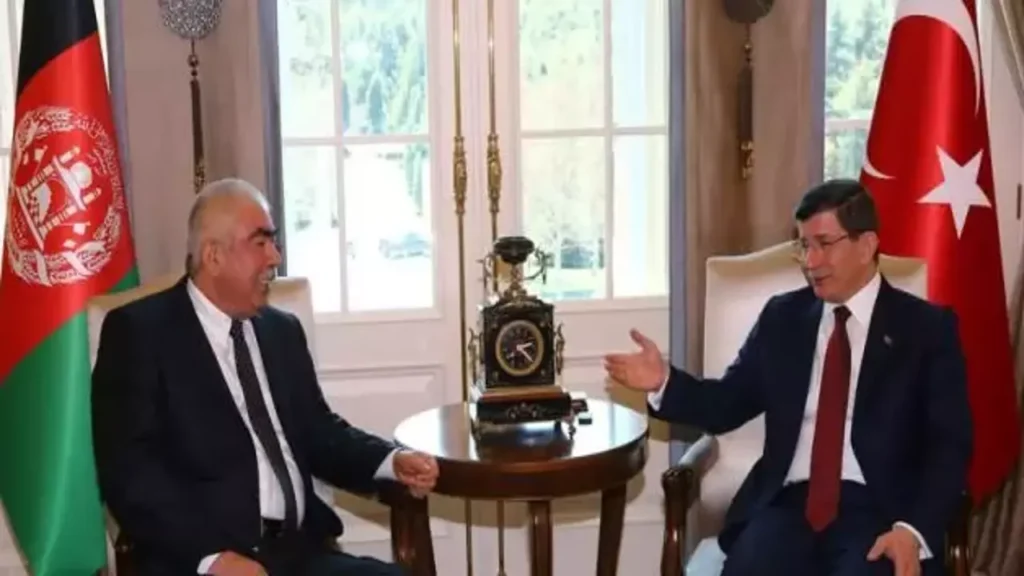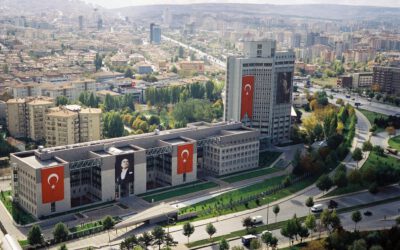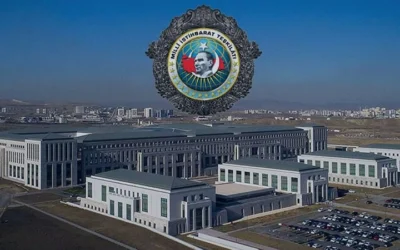The history of international relations between Turkey and Afghanistan is a fascinating example of the connection between geopolitical strategies and cultural ties. From the Ottoman Empire to the founding of the republic and modern diplomacy to the challenges of recent decades, both countries have maintained a unique partnership that is often seen as a symbol of cooperation between eastern nations. This essay examines this relationship, with a particular focus on Turkey’s role in the Afghan conflicts and modern challenges in the context of global power interests.
The basis for Turkish-Afghan relations was established in the 19th century, when Mahmut Tarzi, a prominent Afghan politician in the Ottoman Empire, forged close contacts with Turkish reform circles during his exile. Through his collaboration with the Teşkilat-ı Mahsusa (Ottoman Intelligence Agency) and his admiration for the Ottoman reforms, he sowed the seeds for a strategic alliance. Back in Afghanistan under Emir Habibullah, he advocated for the modernization of the country and established a connection with Turkey based on shared cultural and religious values.
Afghanistan as a “buffer state” and the significance of the caliphate
As early as 1915, during the First World War, a delegation of Turkish and German officials attempted to mobilize anti-colonial movements against the British in Afghanistan and India. But the reluctance of the Afghan Emir Habibullah prevented the caliphate card from being fully exploited, especially at a time when the Ottoman Empire was already disintegrating. Afghanistan’s geostrategic position made it a “buffer region” in the 20th century, where the interests of Great Britain and Russia clashed.
Jamal Pasha and his role in Afghanistan
Jamal Pasha1 was another important figure in Turkish-Afghan history. With the support of the Soviet Union and later the Ataturk government, he worked to gain recognition for Afghanistan in Europe and reformed the Afghan army. However, his plan to supply Afghanistan with weapons and ammunition remained unfinished because he was assassinated by Armenian assassins in Tbilisi in 1922. It is speculated that both Great Britain and the USSR were behind the assassination, as Jamal Pasha’s activities in Afghanistan threatened their strategic interests.
Amanullah Khan and Ataturk: a friendship
The beginning of Amanullah Khan’s reign in Afghanistan coincided with Mustafa Kemal’s rise to political power in Turkey. Both countries were united in their fight against Western imperialism, particularly against Britain. The friendship between the two leaders was cemented by Amanullah Khan’s historic visit to Ankara in May 1928, the first foreign head of state to do so. Ataturk supported his friend’s reform efforts in Afghanistan and advised him to build a strong army to ensure acceptance of the reforms and to adapt them to local conditions.
Ataturk’s influence on Afghanistan
Ataturk’s visionary approach had a lasting impact on Turkish-Afghan relations. The 1921 Treaty of Friendship, which made Afghanistan one of the first countries to recognize Turkey’s spiritual leadership in the Islamic world, is a testament to this influence. Ataturk also worked to protect Muslim countries such as Afghanistan and Iran from communist expansion. His support helped Nadir Khan to ascend the Afghan throne in 1929 with the consent of the local population and Turkish support.
The Sadabat Pact and regional stability
Another milestone was the Sadabat Pact of 1937, which was signed with strong Turkish involvement. This anti-aggression and friendship pact between Turkey, Afghanistan, Iran and Iraq aimed to resolve border disputes and emphasize the sovereignty of the participating states. Despite its importance, the pact lost relevance during the Second World War and was finally ended by the Iranian Revolution in 1979.
Declining Turkish interest after Ataturk’s death
After Ataturk’s death in 1938 and during the Second World War, Turkey reduced its involvement in Afghanistan. While Turkey aligned itself with the US-led Western bloc, Afghanistan turned to the Soviet Union due to the US’s negative stance on providing military assistance to the Soviet Union. This transition marked a turning point in which the Soviet Union became increasingly active in Afghanistan in the military, medical, and agricultural sectors.
The role of the USA and the shift of Afghanistan into the Soviet sphere of influence
The United States’ military support for countries such as Pakistan, Iran and Iraq in 1953, with the aim of containing Soviet influence in the Middle East and South Asia, had far-reaching consequences for Afghanistan. These measures worried the Afghan government and drove the country closer to the Soviet Union, leading to political instability in the long term.
The civil war and Soviet occupation
The assassination of Dawud Khan and his family by Marxist officers in 1978 ushered in a period of civil war. The subsequent Soviet occupation intensified the crisis, while the US, through the CIA, supported the Mujahideen to take action against the Soviets. Pakistan in particular played a central role in this, deliberately supporting groups like Gulbettin Hekmatyar. After the Soviet withdrawal in 1989, the US largely lost interest in Afghanistan and implicitly supported Pakistan’s Afghanistan policy, which further continued the destabilization.
The rise of the Taliban
The Mujahideen, who were seen as heroes for fighting the Soviet occupation, turned Afghanistan into a battlefield through internal power struggles. In this context, the Taliban, who from 1994 onwards propagated a “clean Islamic society”, found sympathy among the war-weary population. The USA only started paying attention to Afghanistan again when Osama bin Laden was recognized as a threat. In doing so, the USA continued to act in coordination with its allies Pakistan and Saudi Arabia and ignored warnings from within its own ranks.
International entanglements and the influence of external actors
The Taliban received crucial support from madrassas controlled by the Pakistani secret service (ISI), which taught them a Wahhabi-Deobandi ideology. At the same time, the US administration underestimated the impact of the Afghan civil war on radicalization in North Africa and other parts of the world. The British MI6, the CIA and France each played different roles in supporting commanders such as Ahmad Shah Massoud, with the French even seeing him as the “Simon Bolivar of Afghanistan”.
General Dostum and the Ethno-Political Tensions
General Abdul Rashid Dostum, an Uzbek leader, played a crucial role in northern Afghanistan. He united local political forces and formed the Junbish party in 1992, which was perceived as an anti-Pashtun regional organization. Despite military successes, Dostum was unable to stop the advance of the Taliban because he was abandoned by his allies. His efforts to defuse ethnic tensions and his alliance with Ahmad Shah Massoud underscored the need for a stable balance among ethnic groups.
The role of the Muslim Brotherhood and ideological currents
The ideas of the Muslim Brotherhood, particularly those of Sayyid Qutb, found their way into Afghanistan through professors such as Abdul Rasul Sayyaf and Burhanuddin Rabbani. These ideologies influenced the formation of Islamic societies and movements before the Soviet occupation. Even after the occupation, these currents remained relevant and contributed to political fragmentation.
Turkey’s position and Iran’s influence
Iran’s efforts to create a “Persian belt” in Afghanistan caused concern in Turkey. Nevertheless, Turkey remained largely passive in its Afghanistan policy due to internal economic difficulties. General Dostum realized at this stage that Turkey could be his only reliable partner. However, tensions later arose between Dostum and Turkey, especially after 2010 when Ankara established a reconstruction team in Shibirgan without his involvement.
The road to political integration
After the liberation of Afghanistan from the Taliban, Dostum worked to ensure compliance with the 2001 Bonn Agreement, which was intended to create a new political order. Nevertheless, he was excluded from political power and reduced to symbolic roles. It was only with the 2014 elections, when Ashraf Ghani became president, that Dostum, as first vice president, was given a significant role in the government.

Challenges and strategic interests in the geopolitical context
Turkey’s modern policy on Afghanistan reflects a balance between regional interests and global obligations. The influence of external actors such as the US, Russia and China, as well as Pakistan and Saudi Arabia’s support for the Taliban, have complicated diplomatic efforts. Turkey, as a bridge between Europe and Asia, has sought to play a constructive role by focusing on education, cultural exchange and strengthening local capacities.
The gradual takeover of power by the Taliban after 2021 poses a significant challenge. Turkey has considered both diplomatic and security options. The continued presence of Turkish troops at Kabul airport until the withdrawal of Western forces illustrates the importance that Ankara attaches to Afghanistan’s stability. Nevertheless, it remains unclear how Turkey can develop a long-term strategy towards a Taliban-led government without compromising its values or international commitments.
Turkey and Afghanistan’s relationship is deeply rooted in history, culture and shared interests. Despite numerous challenges, both countries have proven that they can work together in times of need. Turkey has played a unique role, acting as mediator, helper and strategic partner. In the future, Ankara’s ability to strike a balance between diplomatic neutrality and strategic engagement will be crucial. Afghanistan’s stability remains important not only for the region but also for global security. Turkey, based on its historical experience and cultural proximity, can play a crucial role in the restoration of peace and development in Afghanistan.
Sources:
- Barnett R. Rubin, Afghanistan From The Cold War Through The War On Terror – Oxford University Press, 2013
- Bilal N. Şimşir, Atatürk ve Afganistan – Avrasya Stratejik Araştırma Merkezi Yayınları, 2002
- Baskın Oran (ed.), Türk Dış Politikası, Cilt I (2019), Cilt II (2015) & Cilt III (2013) – İletişim Yayınları
- Matthew P. Dearing, Militia Order in Afghanistan: Guardians or Gangsters? – Routledge, 2021
- Steve Coll, Ghost Wars: The Secret History of the CIA, Afghanistan and Bin Laden, from Soviet Invasion to September 10, 2001 – Penguin Books, 2004
- Steve Coll, Directorate S: The CIA and America’s Secret War in Afghanistan and Pakistan – Penguin Books, 2018
- Timor Shran, Inside Afghanistan: Political Networks, Informal Order, and State Disruption – Taylor & Francis, 2022
- Jamal Pasha, together with Enver Pasha and Talat Pasha, was one of the three most important historical figures of the Committee for Union & Progress (CUP)
Committee for Union & Progress (Ittihat & Teraki Cemiyeti) : A secret revolutionary committee that fought against the oppressive regime of Abdülhamit II (1876-1909) and tried to prevent the collapse of the Ottoman Empire. After the 1908 revolution, with some interruptions until the end of the First World War, this organization was involved in the leadership of the Ottoman Empire. The local cadres of the Committee for Union and Progress mostly took an active part in the Turkish War of Independence. The leaders exiled to Malta also joined the ranks of the War of Independence after their return to Turkey in 1921 and played an important role in winning the war.
The members of the committee tried to reorganize themselves after the victory. However, when Mustafa Kemal Atatürk proclaimed the Republic, he saw it as necessary to eliminate the remnants of the Union and Progress Committee, which, in his opinion, had no place in the new regime. In particular, in connection with the Izmir assassination attempt in 1926 (against Atatürk), former members of the organization who were found guilty by the “independence court” were punished, and a major “purge” was carried out against the organization’s leaders.
↩︎





0 Comments